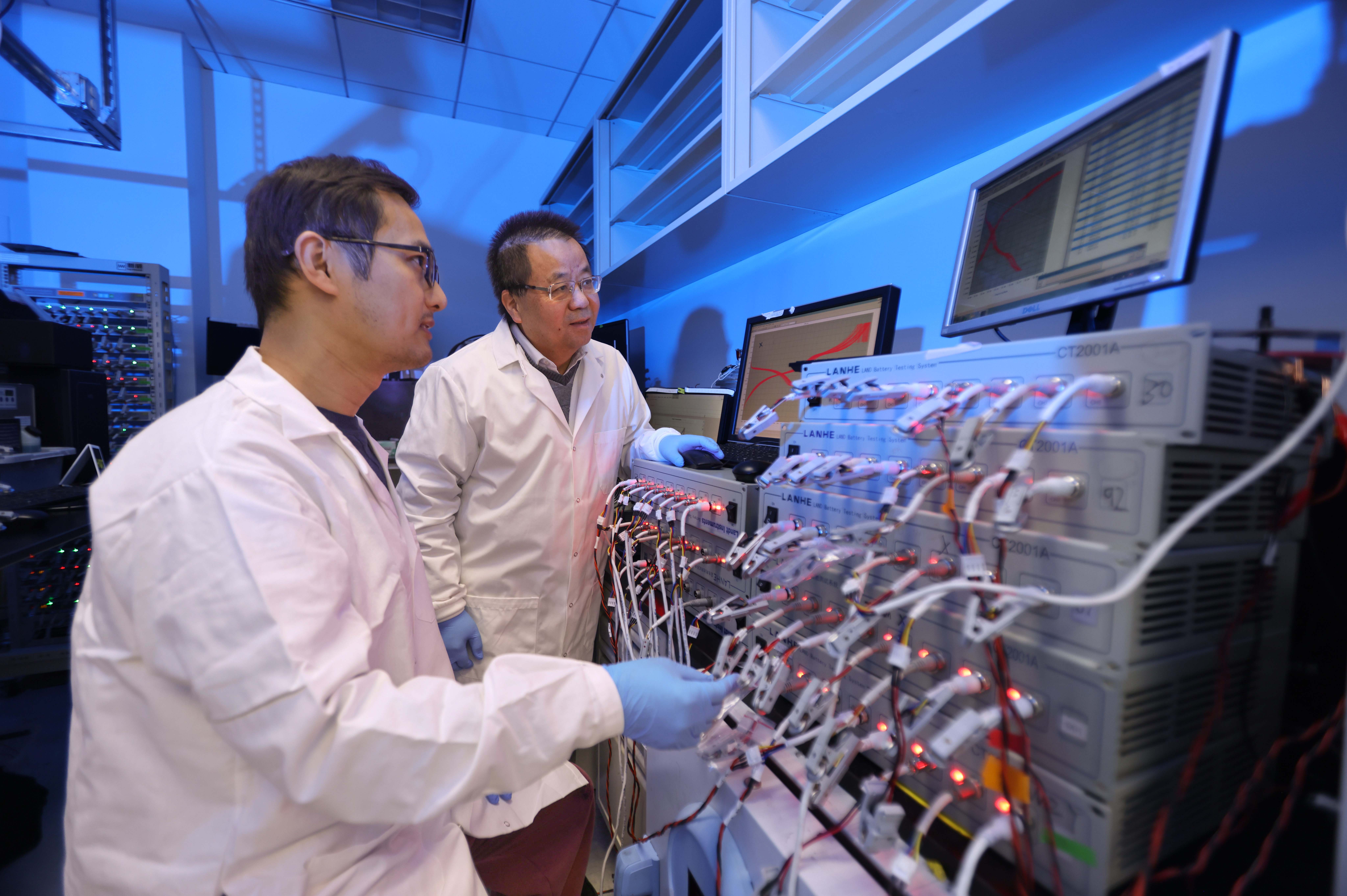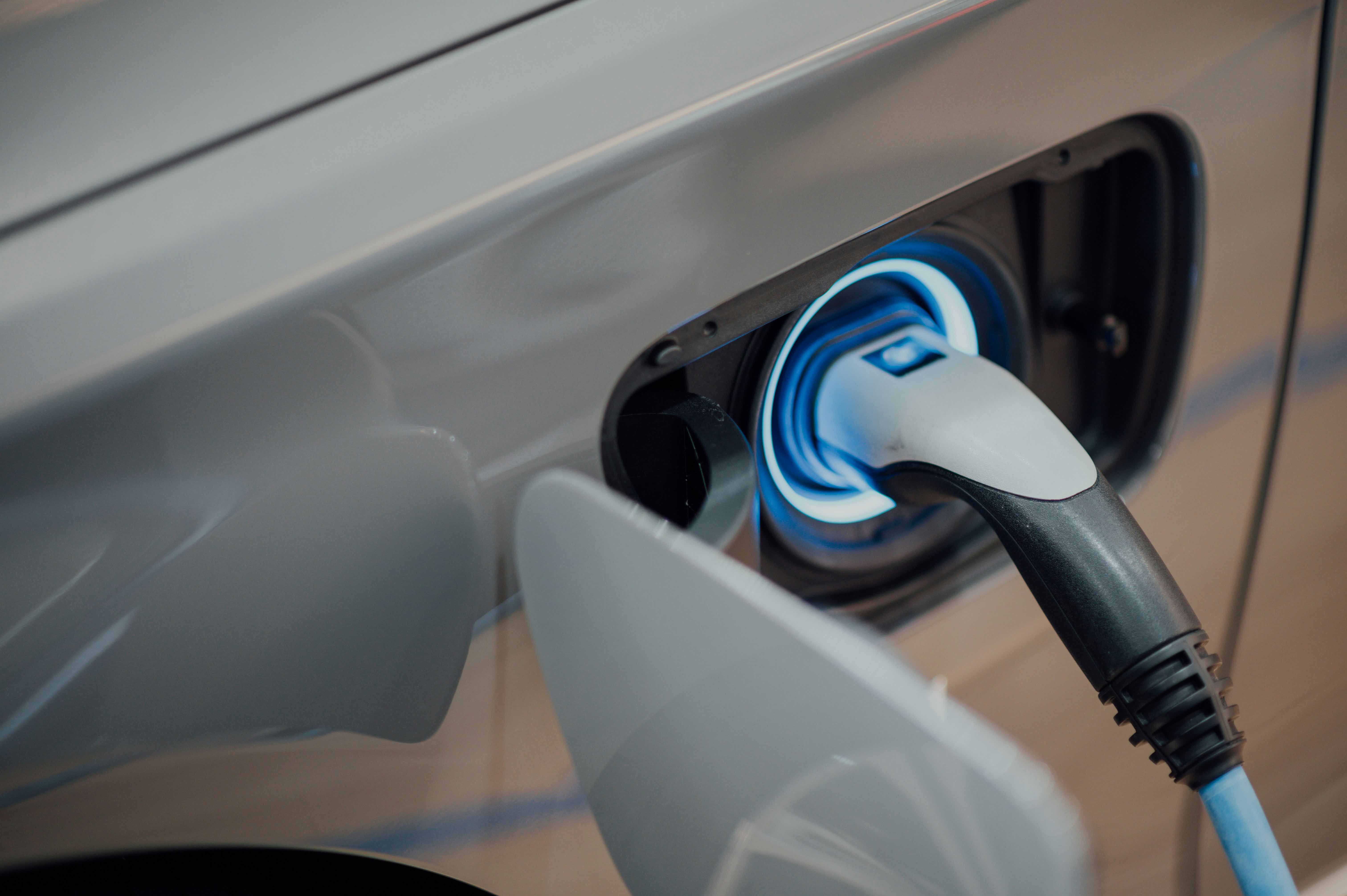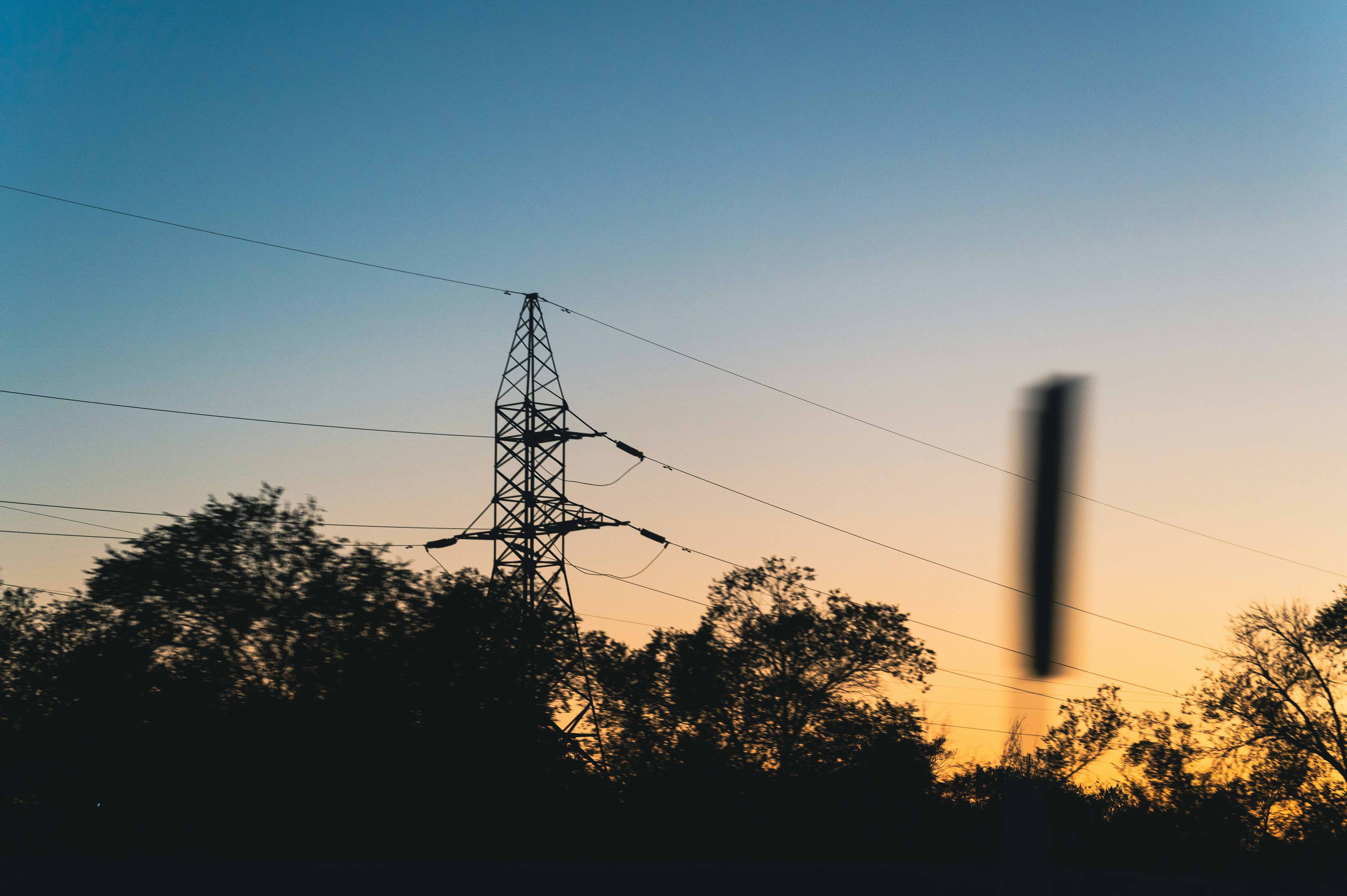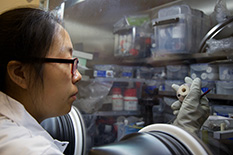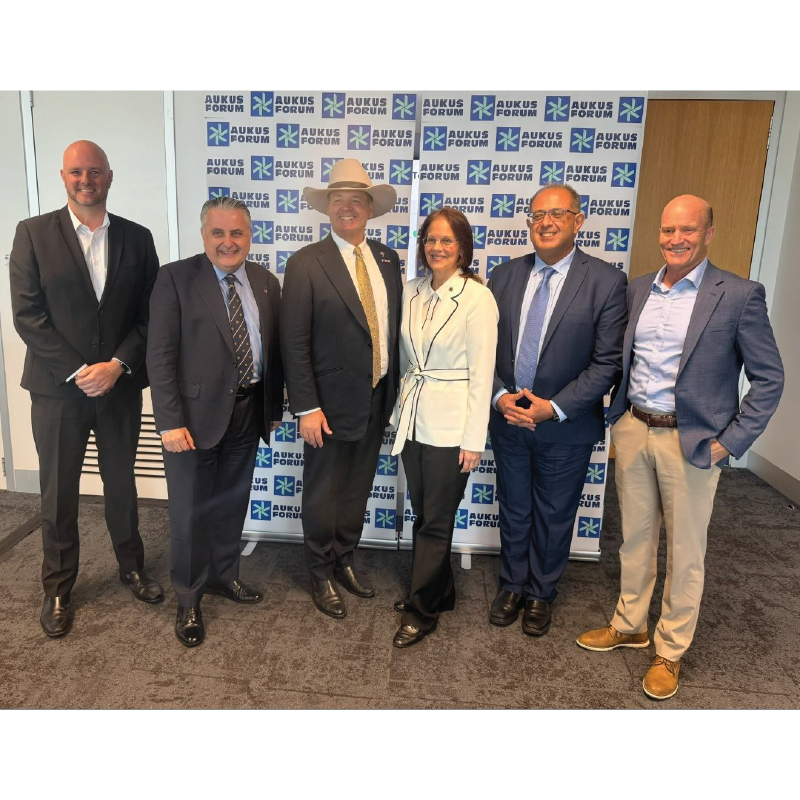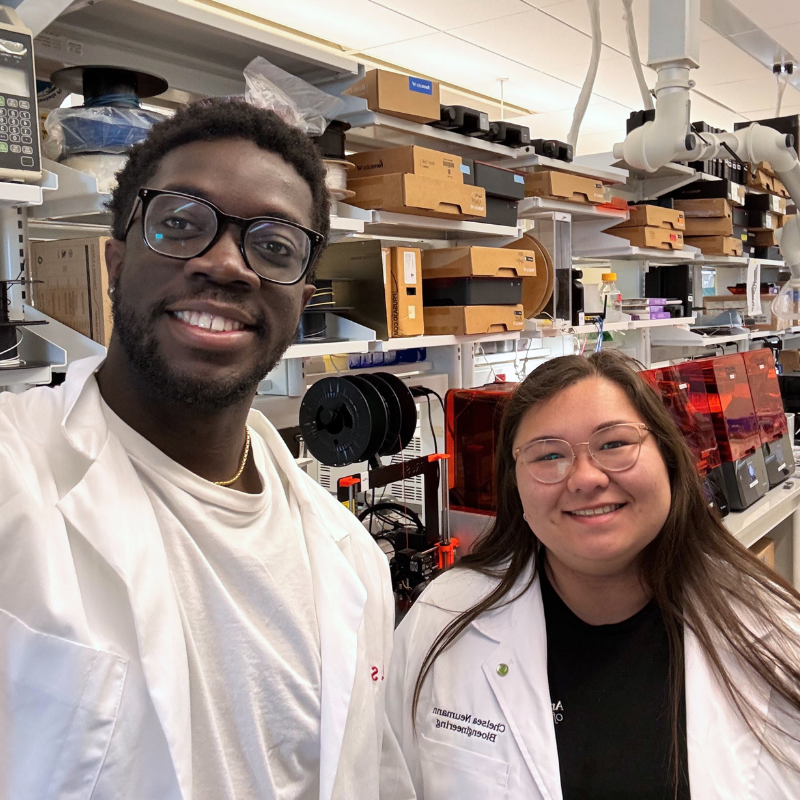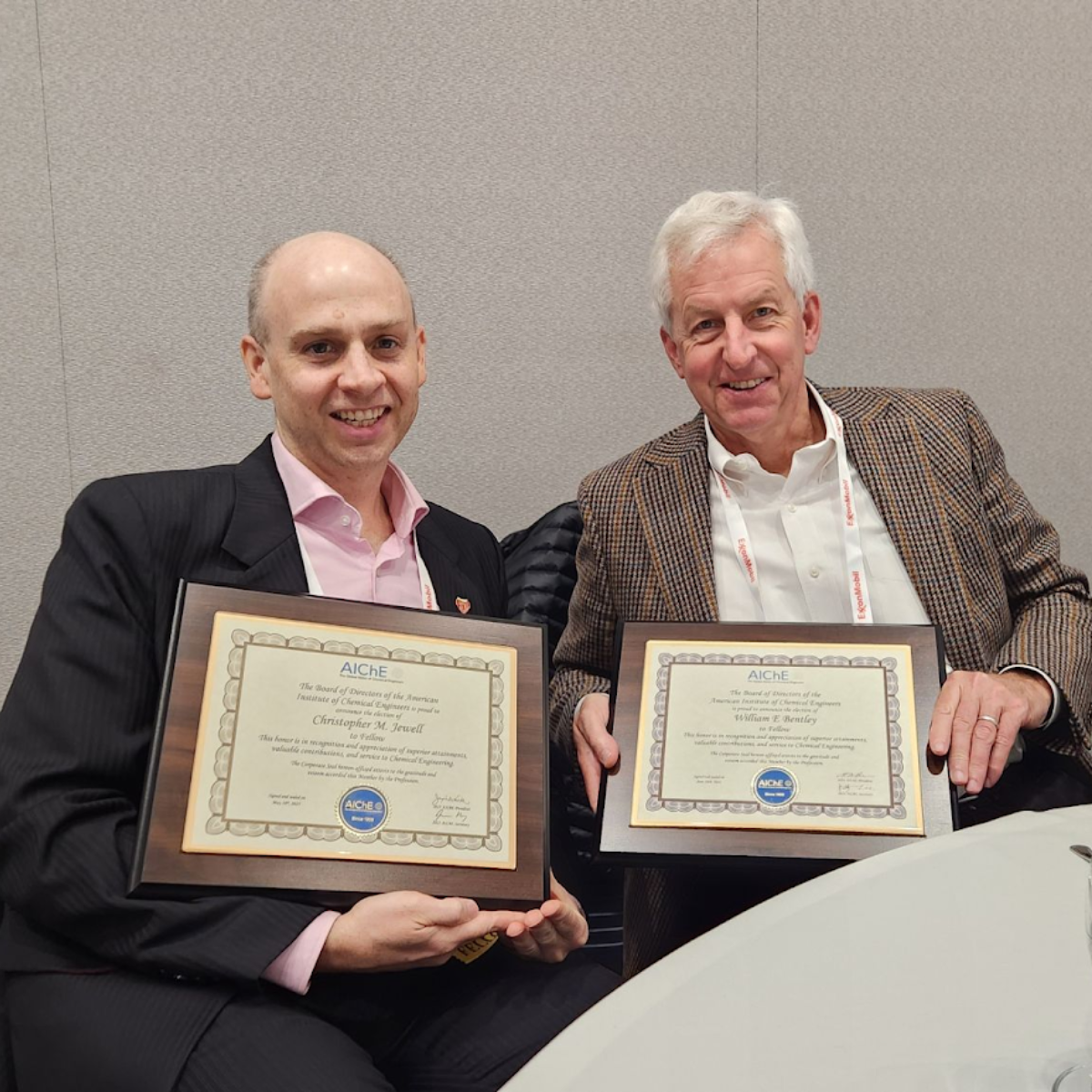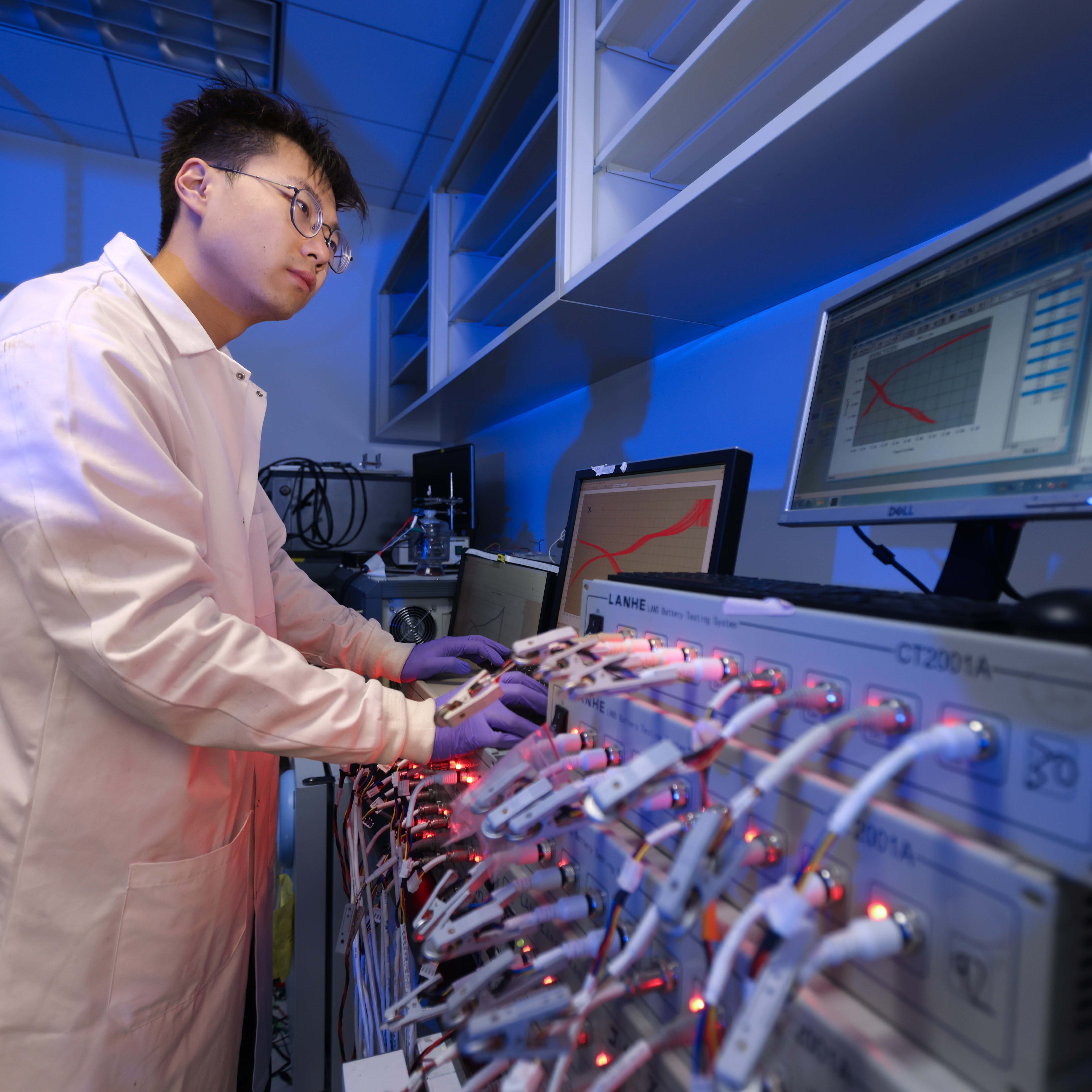News Story
Maryland Researchers Awarded $1.5 Million to Pioneer Batteries for Electric Rail and Maritime Transportation
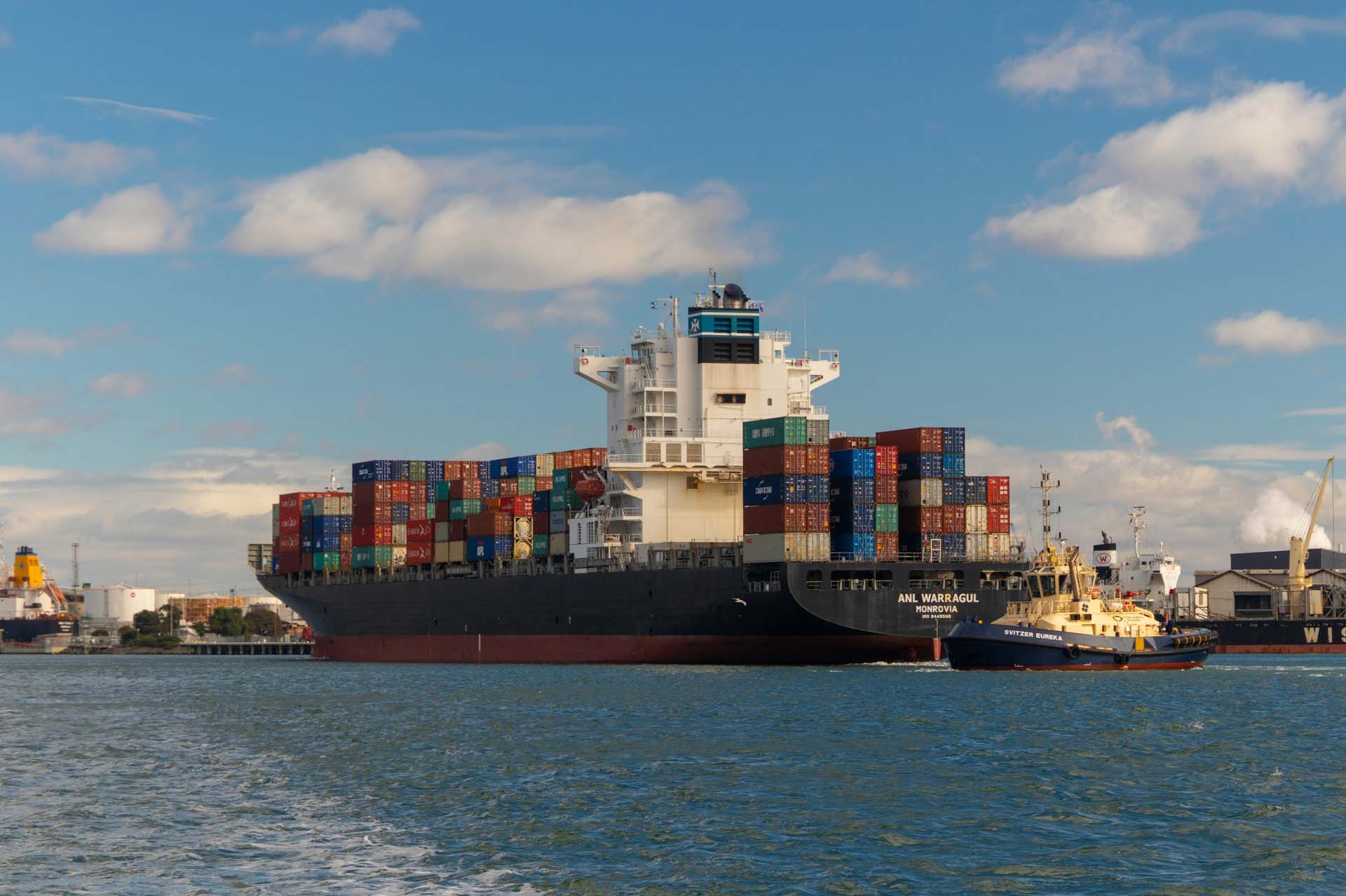
University of Maryland researchers developing next-generation energy solutions won a $1.5 million award to advance batteries for electric maritime and rail vehicles—an effort that could revolutionize modern transportation and curtail millions of tons of yearly greenhouse gas emissions.
Achieving high-energy, rechargeable batteries that power vessels and rail systems with minimal infrastructure disruption could reduce the US carbon footprint. To achieve this goal, a research team led by Professor Chunsheng Wang and Assistant Professor Paul Albertus in the Department of Chemical and Biomolecular Engineering seeks to transform conventional batteries into new energy storage systems that would enable domestic maritime and rail travel.
“We want to see if we can enable long-distance travel using batteries, and if so, we can compete against gasoline. That is, to compete against combustion engines for ships and rail travel,” said Wang.
With global demand for energy expected to rise 50% by 2050, the two researchers became involved with a recent Department of Energy initiative that aims to slash our reliance on hydrocarbon fuels. The Pioneering Railroad, Oceanic and Plane Electrification with 1K Energy Storage Systems (PROPEL-1K) program could enable regional flights with a hundred passengers for up to a thousand miles, as well as domestic rail and maritime travel with fewer stops and reduced infrastructure—all while leaving a reduced footprint on the planet.
The UMD team led by the two researchers is a joint effort with WH-Power, an energy solutions company co-founded by Wang, Distinguished University Professor Liangbing Hu and Associate Dean for Research Robert Briber. Cockeysville-based manufacturer Saft America, a collaborator in other battery research ventures at UMD, is also part of the initiative.
PROPEL-1K, named after the 1,000 watt-hour per kilogram and per liter energy requirement to propel large vehicles, seeks to more than quadruple energy storage capabilities that current electric vehicles batteries present, which limits its use to cars and SUVs. Wang and Albertus will leverage their chemistry and modeling expertise to develop a rechargeable battery for ships and rail cars that meets program requirements, while minimizing changes to infrastructure.
“For ships, trains and aircrafts, there’s also an opportunity to implement recharging infrastructure that’s not just a plug. For trains, you could have one railcar carrying the energy storage, take it off into a rail yard and in that way recharge that unit,” said Albertus.
Other institutions participating in PROPEL-1K, including Johns Hopkins University, the Illinois Institute of Technology and Washington State University, will focus efforts on studying alternative forms of energy storage and conversion, such as fuel cells, solid-state and metal-air batteries.
Maryland’s contribution, a closed battery system, builds on chemistries present in single-use batteries to introduce a higher-energy, rechargeable technology. A closed technology is more practical for large vehicles, researchers say, as it can meet different size requirements and does not require extra features to, for example, remove contaminants in air if oxygen is used in the system.
Following the recent award, researchers will begin the first stage of PROPEL-1K, where they will work on prototyping their closed battery system over the next 18 months.
Published March 26, 2024
